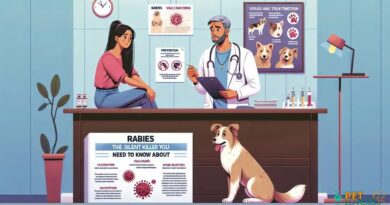O que é Relação Social
What is Social Relationship?
A social relationship refers to the connections and interactions that occur between individuals, particularly in the context of social structures. In the realm of dog ownership, understanding social relationships is crucial for fostering a healthy bond between dogs and their owners. These relationships can be influenced by various factors, including communication styles, emotional bonds, and the socialization experiences that dogs undergo during their formative years.
The Importance of Socialization
Socialization is a fundamental aspect of developing a positive social relationship with dogs. It involves exposing them to a variety of environments, people, and other animals. Proper socialization helps dogs learn how to interact appropriately, reducing the likelihood of behavioral issues such as aggression or fearfulness. A well-socialized dog is more likely to form strong social relationships with both humans and other dogs, enhancing their overall quality of life.
Types of Social Relationships
Social relationships can be categorized into several types, including familial, friendly, and professional relationships. In the context of dogs, the most significant relationships are typically those between the dog and its owner, as well as interactions with other dogs. Each type of relationship plays a vital role in shaping a dog’s behavior and emotional well-being. Understanding these dynamics can help owners create a nurturing environment that promotes positive interactions.
Communication in Social Relationships
Effective communication is essential for building strong social relationships. Dogs communicate through body language, vocalizations, and even scent. Owners must learn to interpret these signals to understand their dog’s needs and emotions better. By fostering open lines of communication, owners can strengthen their bond with their dogs, leading to a more harmonious relationship.
Emotional Bonds and Attachment
The emotional bond between a dog and its owner is a critical component of their social relationship. This bond is often characterized by affection, trust, and loyalty. Dogs are known to form attachments to their owners, which can be seen in their behavior, such as seeking proximity, showing excitement upon reunion, and displaying protective instincts. Nurturing this bond through positive reinforcement and quality time can enhance the overall relationship.
Impact of Environment on Social Relationships
The environment in which a dog lives significantly impacts its social relationships. A stable and enriching environment can promote positive interactions, while a chaotic or stressful setting may lead to anxiety and behavioral issues. Owners should strive to create a safe and stimulating environment that encourages healthy social interactions, both with humans and other animals.
Challenges in Social Relationships
While social relationships are vital, they can also present challenges. Factors such as past trauma, lack of socialization, or negative experiences can hinder a dog’s ability to form healthy relationships. Identifying and addressing these challenges is crucial for improving a dog’s social skills and overall behavior. Professional training and behavior modification techniques can be beneficial in overcoming these obstacles.
Building Strong Social Relationships
To build strong social relationships with dogs, owners should prioritize consistent training, socialization, and positive reinforcement. Engaging in activities such as obedience training, playdates with other dogs, and regular outings can help strengthen the bond between dogs and their owners. Additionally, understanding a dog’s unique personality and needs can lead to more effective interactions and a deeper connection.
The Role of Play in Social Relationships
Play is an essential aspect of social relationships, particularly among dogs. Engaging in play not only provides physical exercise but also fosters social skills and emotional connections. Through play, dogs learn to communicate, establish boundaries, and develop trust with their owners and other dogs. Incorporating regular playtime into a dog’s routine can significantly enhance their social relationships.
Conclusion: The Lifelong Journey of Social Relationships
Understanding and nurturing social relationships with dogs is a lifelong journey that requires patience, dedication, and love. By prioritizing socialization, communication, and emotional bonding, owners can create a fulfilling and enriching environment for their dogs. This commitment to fostering healthy social relationships will ultimately lead to happier, more well-adjusted pets.


